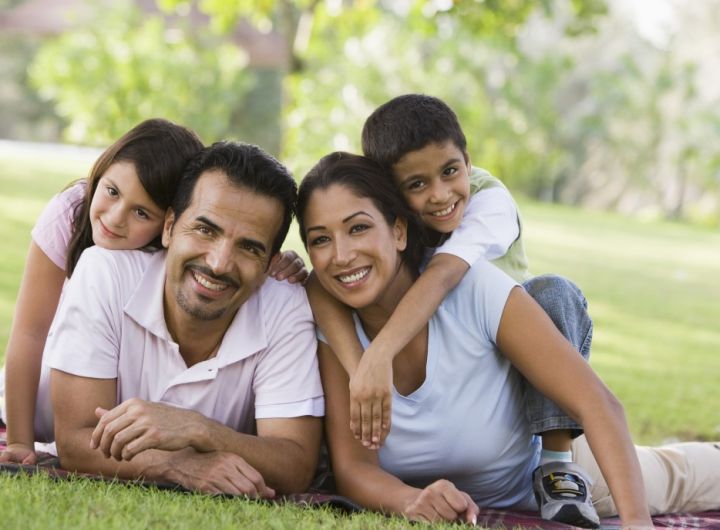
“I want to be positive! But how?”
I think it’s fair to say that there is an aspect of the Japanese culture that encourages us to be always striving for the best and to be hard on ourselves when we don’t achieve everything we want to. From what I hear from my colleagues and parents around the world, it’s common in other cultures too.
When I’ve met parents attending Triple P Seminars in Japan, they often ask: “How can I be positive?" Perhaps when they hear ‘Triple P – Positive Parenting Program’, it makes them think about whether their approach to parenting is positive.
The strange thing is, when they talk to me, they look quite happy and don’t appear to be depressed or stressed, but they will still say they don’t think they’re "positive”. When I ask them why, they say things like:
- “I’m always telling my children off about something.”
- “My child misbehaves and I can’t seem to find anything to praise them about, so I must be a negative person.”
- “Other parents seem to be great at balancing parenting and work and other tasks; well, I can’t do things like them.”
When you see these things written down like this, it’s perhaps easier to understand that most parents might have thoughts like this from time to time.
These views on parenting may be common, but if you’re carrying the weight of these thoughts every day, you may experience an ongoing sense of guilt and disappointment. Not surprisingly, these feelings may make it difficult for parents to deal with children calmly and with confidence that they’re doing a good job.
BEING REALISTIC HELPS YOU BE MORE POSITIVE
So what can parents do to feel more positive? In this blog, I’m going to focus on an idea that many people find helpful, and which is part of Triple P, which is to do with parents’ expectations and pre-conceived views on parenting itself.
It would be a great help to us adults, and no doubt we could all spend the whole day calmly, if children would automatically follow rules and parents’ instructions! But is it really realistic to expect that?
Children are more likely to be disruptive when they are tired or hungry. Also, they sometimes forget rules and routines inadvertently when they are absorbed in activities. If you think about it, this is not so different to how we ourselves tend to make little mistakes, or are more easily annoyed, when we’re tired or hungry.
And sometimes our attitudes to parenting and children can cause us to feel more stressed or negative than what’s healthy.
WHY YOU PERCEIVE YOUR CHILD MISBEHAVES “ALL THE TIME”
It’s inevitable that children misbehave sometimes. But if a parent thinks “there’s very little to praise about my child”, that very thought may increase the parent’s attention to mistakes and misbehaviour. At the same time, it can become easier to overlook the child’s good behaviour and achievements.
Bear in mind too, that a child’s capabilities depend on their age and developmental stage. If you’re not sure if your expectations of your child are realistic you may like to check how your expectations compare to what other children are doing. You could talk to:
- Other parents
- Your doctor
- Your child’s teacher
- Another professional (including a Triple P provider).
Just like our expectations of our child can be unrealistic, we can also set impossibly high standards for ourselves. It’s not a bad thing to have aspirations and things we want to achieve as a parent and as a person. However, what’s not helpful is having expectations like these:
- “I should always enjoy parenting.”
- “I shouldn’t have any trouble juggling parenting, work, housework etc.”
- “It should come naturally for me to always be patient with my child.”
Parents are humans too, and many are in situations where there isn’t the ideal amount of support from friends or family. There are times when we don’t feel positive, such as when we’re unwell, or have just received some bad news.
BALANCING IT ALL ISN’T EASY!
Balancing home and work is difficult for many parents, which is why the issue has now been recognised in one of Japan’s national government policies. Having said all that, no matter which country we are in, we can learn to develop better coping skills and to not be overwhelmed by these feelings. And we can also learn more skills and strategies to help us be calm, consistent and patient with our children. Just remember, it’s not realistic to expect this to be automatic.
Having realistic expectations helps us become kind to our child and ourselves, and it makes our parenting and life in general more positive and relaxed. So, if you feel like you’re not positive in the way you’d like to be, try reflecting on your expectations as a starting point to change.